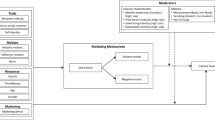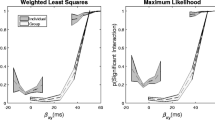Abstract
Advertisers often have been accused of using techniques which manipulate and control the behavior of consumers and hence violate their autonomy. Some of these techniques are puffery, subliminal advertising, and indirect information transfer. After examining both criticisms and defenses of such practices, this paper presents an analysis of four of the concepts involved in the debate — the concepts of autonomous desire, rational desire, free choice, and control. Applying the results to the case of advertising, it is shown that advertising cannot be found guilty of intrinsically or frequently violating the consumer's autonomy in any of the relevant senses of this notion.
Similar content being viewed by others
Author information
Authors and Affiliations
Rights and permissions
About this article
Cite this article
Arrington, R.L. Advertising and behavior control. J Bus Ethics 1, 3–12 (1982). https://doi.org/10.1007/BF00382800
Received:
Issue Date:
DOI: https://doi.org/10.1007/BF00382800




